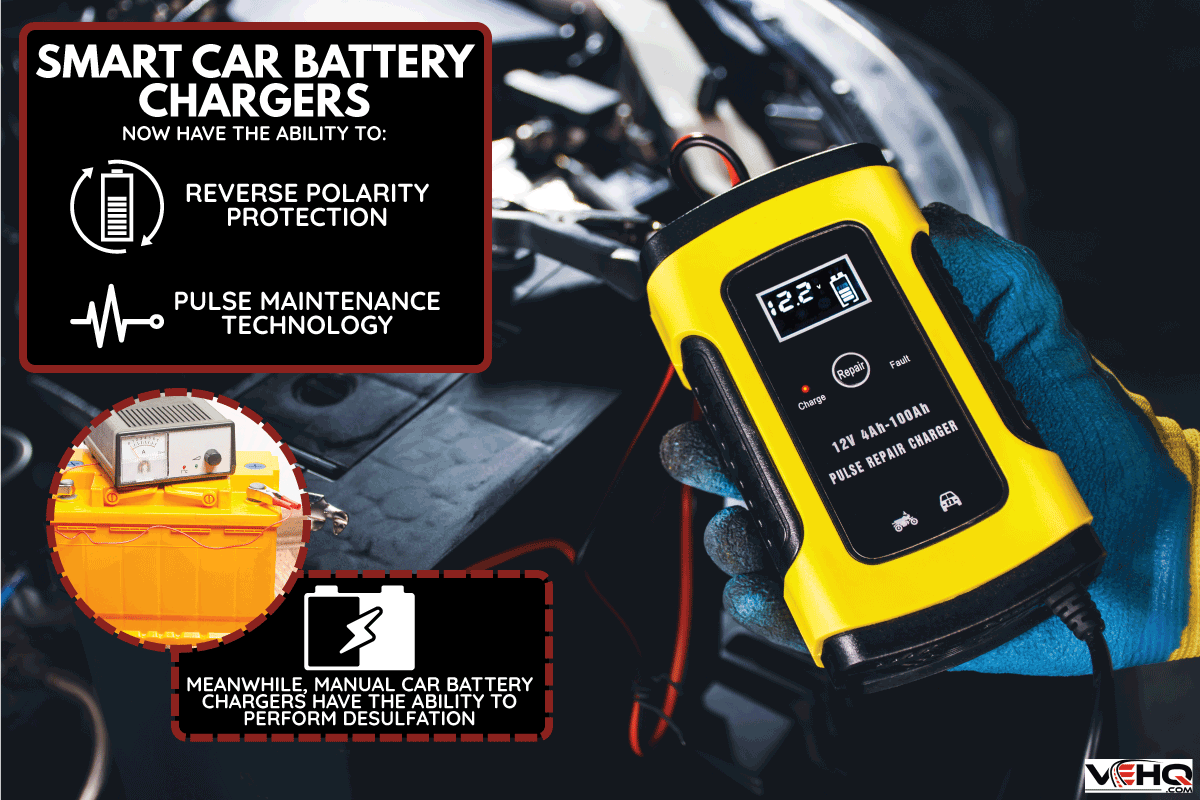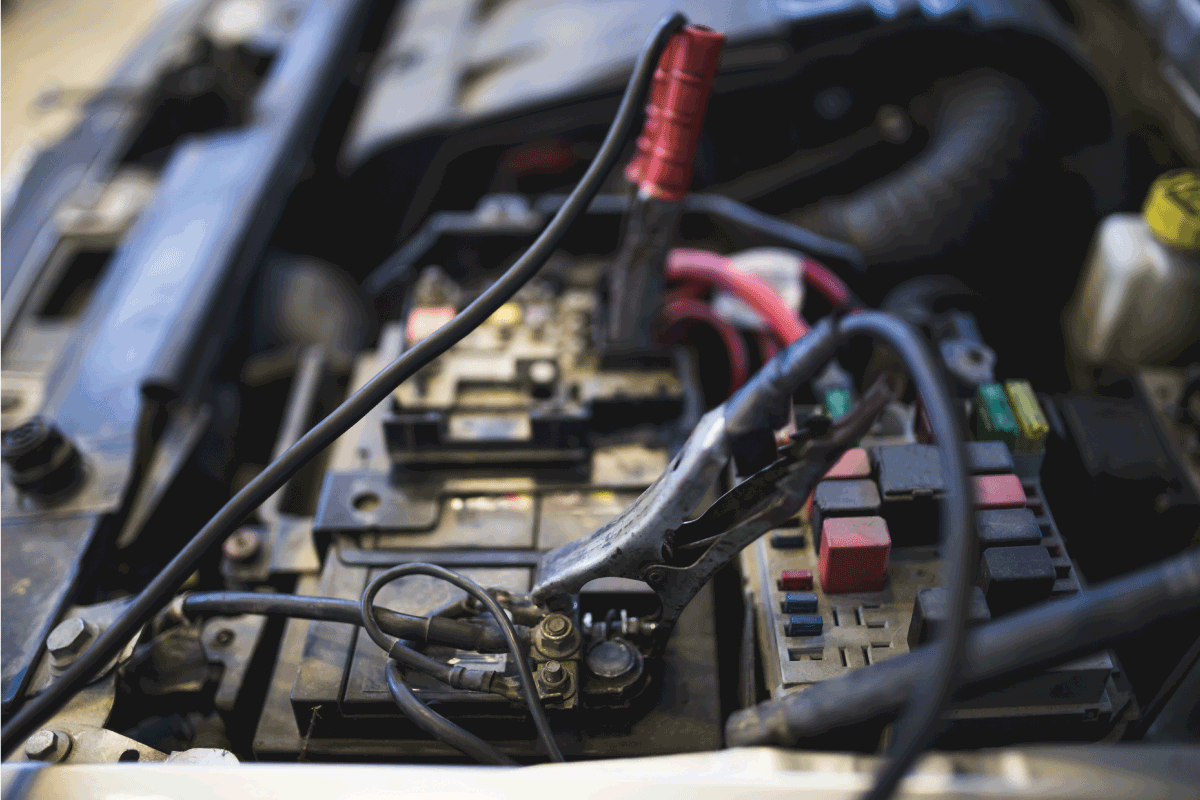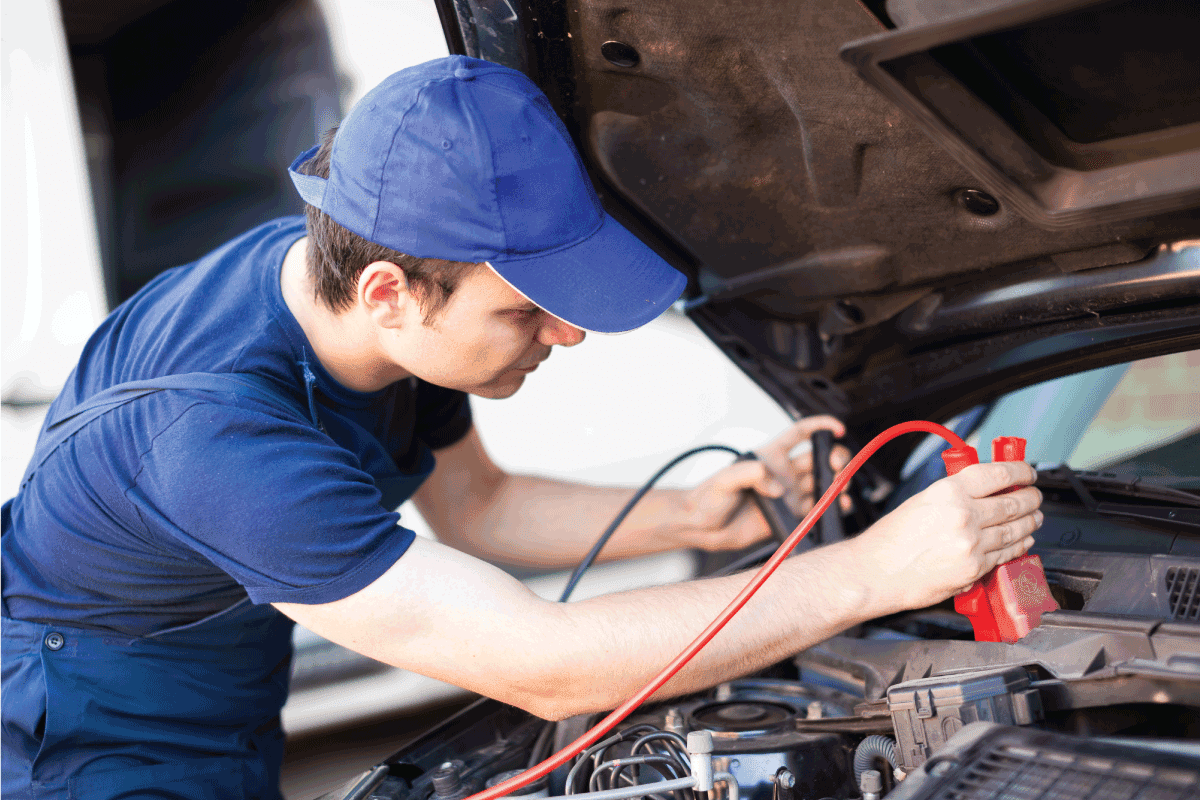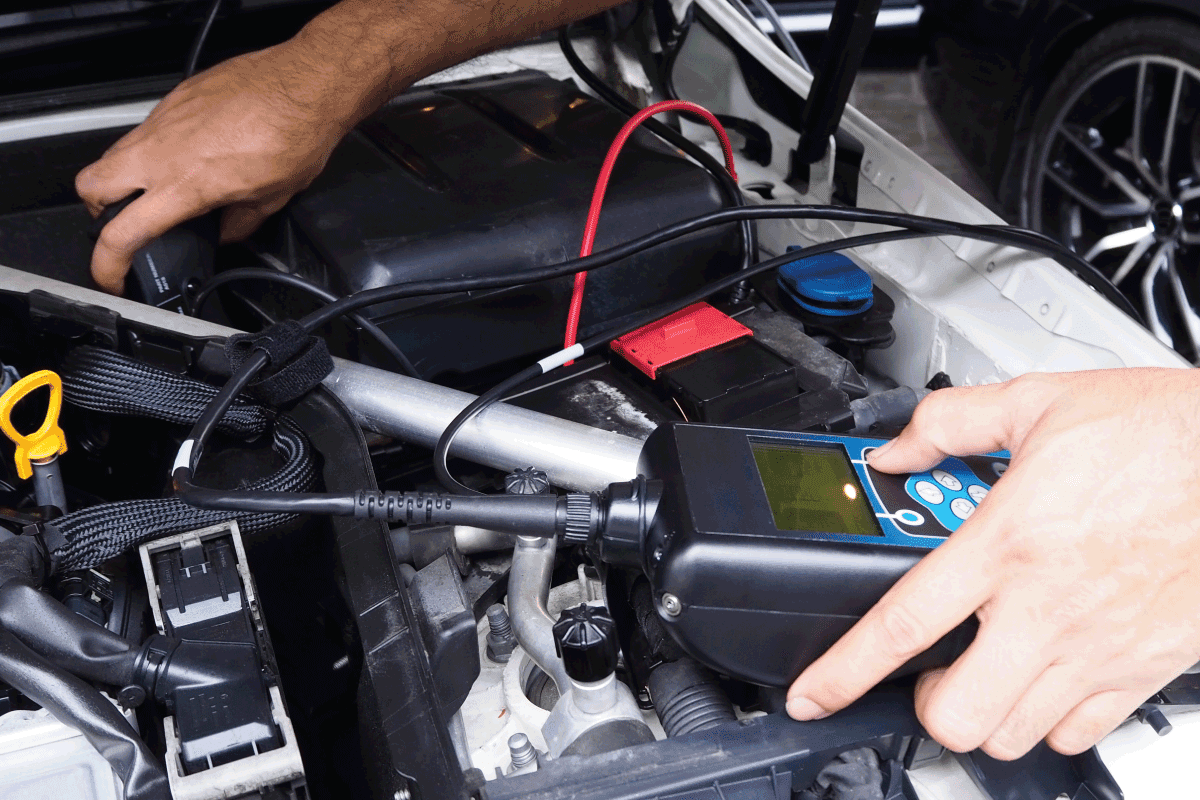If you're like most people, you're used to a charger charging your device until its fully charged, but can your car battery be charged in the same way? We have researched whether you can do this or not, and here's what we found.
If you're looking for a car battery that will shut off automatically once it has completely charged, then you need to look for a smart car battery charger. If the battery is almost full, smart chargers will automatically limit the current going into your car battery to ensure that you don't overload it.
In this era where time is everything, it's easy to forget to disconnect a charging cable to your car battery when you go out. That's why convenience is so important! You may be compelled to go ahead and buy a smart car battery charger after learning that it does automatically shut down after completing the charge, but is it worth it? Read on to find out more about car battery chargers and whether they can do the job or if they are just the result of a marketing gimmick.
Types of Car Battery Chargers
There are two main types of car battery chargers available: smart and manual. The differences between the two are quite apparent and the choice you make will depend on what you are looking for in a charger.
Smart car battery chargers
Smart car battery chargers are not complicated to use. They also come with built-in features. They're the most convenient because they give you instant access to a list of things you can do that you can't do with manual car battery chargers. Here are some of the most common features of a smart car battery charger:
Reverse polarity protection
Reverse polarity protection means that the car battery charger has built-in circuitry to prevent you from damaging your car battery if the clamps are hooked in the wrong battery terminals.
Pulse maintenance technology
Pulse maintenance technology detects and manages the charging process. During the charging cycle, the car battery charger constantly monitors the current and adjusts the rate of charge accordingly.
If the charger senses that the battery is nearing full capacity, it will slow down the charge to prevent overcharging and overheating of the battery. This feature protects your battery and ensures the longevity of your battery.

Manual car battery chargers
A manual car battery charger is exactly what it sounds like: a car battery charger that uses a manual method to charge the car battery. You hook up the clamps to the battery terminal and that's it!
A manual car battery charger doesn't offer any of the convenience of a smart car battery charger because there is no built-in technology to automatically detect the condition of the battery or to manage the charging process. You need to keep an eye on the battery to see when it needs to be disconnected.
Nonetheless, here are some of the advantages of a manual car batter charger over a smart car battery charger:
Desulfate
Manual car battery chargers have the ability to desulfate. Desulfation is the process of removing lead sulfate crystals from batteries. If the battery has sulfate crystals in it, its capacity to hold charge decreases.
Desulfation is done by applying an equalizing charge when the battery is at full capacity. This procedure is basically overcharging the battery to break down the lead sulfate crystals. The result is that the battery's capacity is restored.
Most smart car batteries automatically shut down when the charge is complete. This means that they can't be used to apply an equalizing charge. However, some smart car battery chargers offer the equalizing charge feature, but it's not as effective as how a manual car battery charger would desulfate.
Check out this smart car battery charger with desulfator on Amazon.
What causes lead sulfate crystals to develop in car batteries?
Sulfation refers to a chemical reaction between the lead plates in the battery and the sulfuric acid that occurs when the battery is not fully charged and stored for an extended period of time. Sulfation occurs gradually over time and the effects are more noticeable as the battery ages.
The sulfation process continues until it reaches a certain point. A working car battery that has a bad case of sulfate buildup can have a capacity that is only 80% of what it was originally capable of.
There are several things that can cause sulfation, including storage in high temperatures for prolonged periods. Storing batteries in low temperatures will reduce the chance of sulfation because it will slow down the chemical reaction. In fact, the optimal temperature for storing batteries is 15°C.
How to Apply Equalizing Charge on a Car Battery
Applying an equalizing charge on a car battery is a fairly simple process. The first condition to be met is that the car battery is fully charged. If your car battery is fully charged, you can then proceed to apply 10% more of the recommended charge voltage. The equalizing charge is the same as a trickle charge except that it is applied over a longer period of time.
How Long Should I Apply Equalizing Charge to Desulfate Car Battery?
Some car batteries can be desulfated in a few hours while some can take up to two days. Factors that affect how long desulfation takes, or the desulfation rate, include the age, size and condition of the battery. Always check the manufacturer's recommended procedure for desulfating your battery.
How Often Should I Apply Equalizing Charge to Desulfate Car Battery?
According to Battery University, applying an equalizing charge to desulfate a car battery should be done at least once a year. However, many experts recommend doing it twice a year.

Charging dead car batteries
Typically, smart car battery chargers don't have the ability to charge dead car batteries. This is because they are not designed to be used on dead batteries. They are programmed to detect a minimum threshold in order to initiate the charging process.
When the voltage of a battery drops below this minimum threshold, the smart charger will detect this as a low battery condition and will shut off the charging process until the voltage is again above this level.
If you want to charge a dead battery using a smart car better charger, you can initially juice it up using a manual car battery charger until you reach the minimum threshold required for the smart charger to detect. Then switch over to the smart charger to continue the charging process.
How Many Times Can You Charge a Car Battery?
It all depends on how much you use your car's battery. A car battery is designed to hold a charge for a long period of time. However, as the battery ages, it becomes less effective at holding a charge. This is because the internal components that help retain the charge begin to wear out over time.
The number of recharging cycles a battery can withstand is based on how many times it has been used. If a battery hasn't been used more than it should have been in its lifetime, it will not last longer than a battery that has been used a lot more.
This is where the battery's "cycle life" comes into play. The number of cycles that a battery can go through is determined by how much you drive the car, storage conditions, and the driving and weather conditions.
Car batteries can be recharged between 500 to 1,000 times during their cycle life. You may be surprised to learn that most car batteries can last up to five years of driving if you use them responsibly.
How Long Does a Car Battery Charger Fully Charge a Car Battery?
A regular car battery charger can usually recharge a dead car battery in about 24 hours at 2 amps per hour.
The length of time it takes to recharge a standard 12-volt car battery depends on how much amperage or current the car battery charger can dish out. A car battery charger with a higher amp output means that it will take less time to fully recharge a dead battery.

Do I Really Need a Fully Charged Car Battery to Start a Car?
A fully charged battery is not always required to start your car. A partially charged battery can be sufficient.
You may find this hard to believe, but according to Jeffrey Smith, a former marine mechanic and Quora contributor, a battery that is partially charged at 25% reads 12 V, which has a difference of 0.5 V from a fully charged battery with a reading of 12.5 V!
Cranking your car requires more than just the voltage your car battery can provide. Amperage is what really matters when cranking your vehicle. The cranking amps should be in the range that is specified on your battery.
It is possible that your car battery will show a good voltage reading, but will fail in a load test. A load test measures the amount of current that can be drawn from a battery.
This is done to ensure that it can supply enough current when needed and that there are no other problems with the battery.
Why is My Car Battery Charger Not Charging My Car Battery?
Before troubleshooting the possible causes of why your car battery is not holding charge, it’s important to look for visible signs of the problem. Check the battery terminals for corrosion, which can cause the terminals to short out.
If you notice that the terminals are dirty or corroded, then you should apply PB Blaster or a similar lubricant to the terminals and allow the chemical to sit for several minutes before scrubbing them clean.
If the terminals are clean and there is no corrosion, then you may have to perform a more in-depth investigation of the charging system.
Check out PB Blaster on Amazon.

In Closing
Smart car battery chargers are a great way to keep your battery healthy and safe. With an auto-shutoff feature, you can be sure that you won't overload your battery and end up damaging it.
The easiest way to tell if a charger is smart is to look for specific features that indicate smart charging technology. Some of these include automatic charging, automatic overcharge protection, and more. The best part about smart chargers is that they would know that the battery is nearly full and slow down the charging process.
You might also like:


